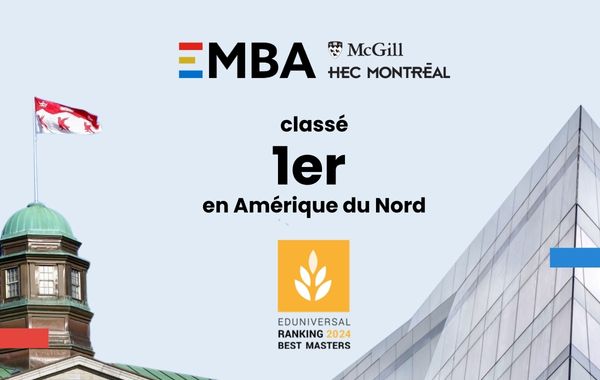Dans son dernier guide TopExecutive Career, QS Top MBA a interrogé l’un des diplômés de 2012 de l’EMBA McGill-HEC Montréal et entrepreneur, Pascal Lépine, président et fondateur d’Atypic, une firme de services-conseils en stratégie, communication et financement spécialisée auprès d’organismes du secteur pluriel, soit des organismes à but non lucratif et d’organismes de charité. Alors que plusieurs pensent encore que les programmes d’Executive MBA sont réservés aux dirigeants de grandes sociétés, il est au contraire, de plus en plus courant de rencontrer des gens de milieux très différents qui décident de s’investir dans ce type de programme, dont, plusieurs entrepreneurs. L’article publié par QS Top MBA s’intéresse d’ailleurs à ce profil particulier dans son entrevue avec Pascal Lépine qui a lui-même lancé son entreprise à la mi vingtaine.
Voici donc les sept conseils de Pascal pour les entrepreneurs qui décident de poursuivre un EMBA.
- Trouver le bon programme pour vous:
“What appealed to me about the program was its innovative approach to management: the emphasis on collective learning (inspired by Professor Henry Mintzberg) versus the more traditional approach.”
- Être ouvert à apprendre des autres, dont les dirigeants de grandes entreprises:
“I do believe that we can learn as much with our peers as we can from a professor. I was eager to hear what other senior executives were doing and what tools and strategies different corporations were applying. This form of knowledge sharing was a decisive factor for me.”
- Tâcher de mettre en pratique ce que vous apprenez dans le programme dans votre entreprise:
“I was enticed by the fact that the program is delivered in a practical fashion; I was going to be able to use my own company as my case study and apply the new knowledge as I gained it. Therefore I would be able to measure the effectiveness of what I learnt on the go.”
- Impliquer son équipe dans ce projet:
“Firstly, it really brought a new breadth to my team. I involved many of my employees in activities related to the program. We exchanged ideas and reflected together on new things I was learning. We all learned a lot from each other and some of them decided to pursue continuing education themselves.
- Permettre à vos clients aussi, de bénéficier de vos nouveaux apprentissages:
“As I am in the consulting business, my clients benefit largely from the knowledge I acquired throughout the program. Many organizations today are facing complex challenges and the solutions are not easy to find. The more holistic understanding that I now have about organizations helps me to provide even more comprehensive consulting solutions to my clients.”
- Être prêt à remettre en question ce que vous avez appris jusqu’ici et à vous remettre vous-même, en question:
“I literally woke up one day thinking I was ready to challenge what I had learnt about management since the foundation of my company. After some research, an Executive MBA seemed the only valid option.
“In my opinion, there is only one precondition: be ready to question yourself and the way you manage. If you think you already know-it-all, an Executive MBA will be a waste of your time, and of the other participants’! When we go through such a program, it deeply changes the way we perceive ourselves, our colleagues, our companies, and even the idea of management itself. One needs to be ready to see his paradigms challenged and shaken. Most of the time, it is really uncomfortable. But it is totally worth it at the end.”
- Ne pas attendre le moment parfait:
“I think that each person knows when the time feels right. But don’t wait for the perfect timing. There is always something going on at work or at home. There is always a good reason to postpone pursuing an EMBA. If one waits for the perfect timing, one will probably end up never doing it.



